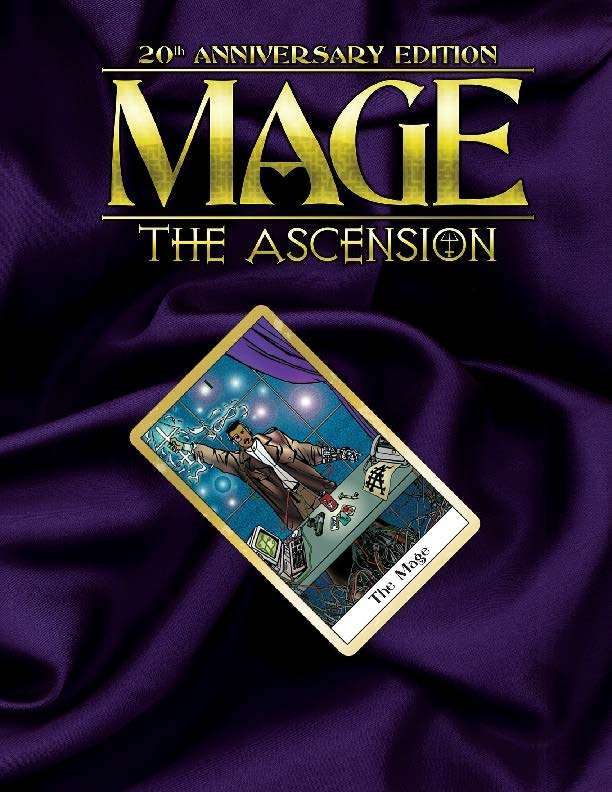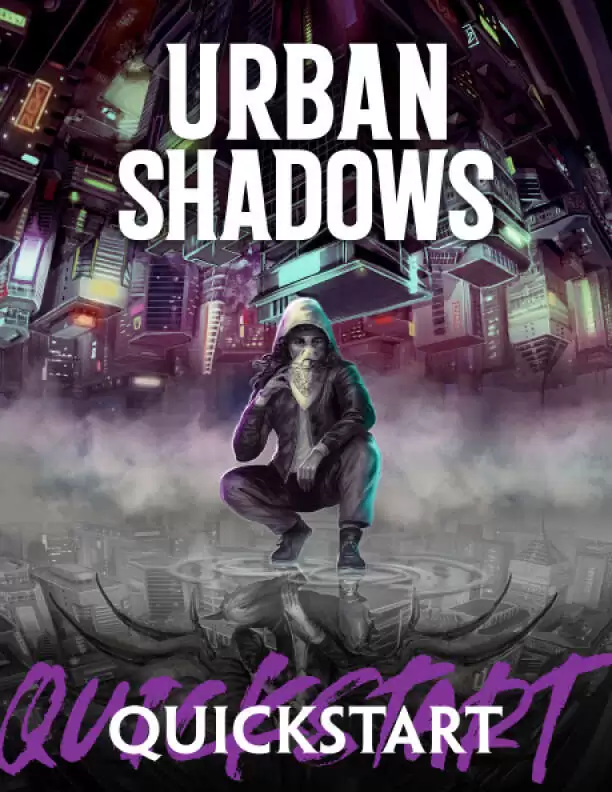Mage: The Ascension Urban Fantasy; Mature; Psychological; Narrative-Driven; Character Customization; Collaborative Worldbuilding; Tactical Combat
Mage: The Ascension is a tabletop roleplaying game set in the World of Darkness, focusing on mages who manipulate reality through their awakened understanding of the universe. It combines urban fantasy with mature, psychological themes and emphasizes narrative-driven gameplay, character customization, collaborative worldbuilding, and tactical combat. The core mechanic revolves around Spheres of influence, allowing players to creatively define their magic. Its uniqueness lies in its exploration of subjective reality and the consequences of altering it.
Theme and Setting
Mage: The Ascension plunges players into a dark, modern fantasy world where reality is subjective and shaped by belief. Awakened mages, once ordinary humans, now perceive and manipulate the hidden forces that govern existence. These mages are not casting fireballs exclusively; they're altering perceptions, bending probability, and influencing the very fabric of the universe.
The setting emphasizes an ongoing struggle between different factions with conflicting views on reality. The Traditions seek individual enlightenment and freedom of belief, while the Technocracy strives for a unified, scientific consensus to protect humanity, even if it means suppressing dissenting viewpoints. This conflict is further complicated by the Marauders, mages driven insane by Paradox, and the Nephandi, who serve cosmic entities of oblivion. The spirit world, with its numerous dimensions and realms, adds another layer of complexity and potential for adventure.
Reality itself pushes back against blatant displays of magic through Paradox, a backlash against effects that contradict the consensus reality held by the Sleepers (unawakened humans). This encourages players to be creative and discreet in their use of magic, favoring coincidental effects that subtly alter events rather than overt displays of power.
Core Mechanics and Rules
The core mechanic of Mage revolves around nine Spheres of influence: Correspondence, Entropy, Forces, Life, Mind, Matter, Prime, Spirit, and Time. A character's skill in these Spheres determines their ability to manipulate reality. Unlike games with fixed spell lists, Mage encourages players to define their magical effects creatively, based on their understanding of the Spheres. The game master adjudicates the results, considering the character's skill and the potential for Paradox.
Character creation involves assigning points to Attributes (Physical, Mental, Social), Abilities (Talents, Skills, Knowledges), and Backgrounds. A unique aspect is the use of Personality Archetypes, which provide a framework for roleplaying and a means of regaining Willpower, a resource used to enhance abilities and resist Paradox. Task resolution typically involves rolling a number of ten-sided dice, based on the relevant Attribute and Ability, against a target number set by the GM. Success is determined by the number of dice that meet or exceed the target number. Combat involves similar dice rolls, with specific rules for damage and soaking. However, some find the combat system to be cumbersome.
What Makes It Unique
Mage: The Ascension stands out due to its emphasis on subjective reality, philosophical exploration, and player creativity. The magic system, based on Spheres rather than fixed spells, allows for nearly limitless possibilities. Players are encouraged to think creatively and consider the consequences of their actions, both in terms of Paradox and the wider impact on the world. The game's focus on the conflict between different belief systems provides a rich framework for storytelling and character development.
The game also delves into mature themes, such as the nature of reality, the ethics of power, and the struggle between order and chaos. This makes it a more intellectually engaging experience than many other tabletop RPGs.
Target Audience and Player Experience
Mage: The Ascension is aimed at a mature audience interested in philosophical themes, intricate worldbuilding, and narrative-driven gameplay. It's well-suited for players who enjoy character customization and collaborative storytelling. The game can be challenging for newcomers due to its complex setting and open-ended magic system. However, the rewards are significant for those willing to invest the time and effort to learn the rules and embrace the game's unique approach to magic. Player experience highly depends on the Storyteller and group's focus on roleplaying and collaborative storytelling, as opposed to tactical combat.
Some may find the setting's default dark and gothic tone off-putting, but this can be easily modified to suit different preferences. The key to a successful Mage game is a willingness to engage with the game's themes and mechanics in a creative and thoughtful way.



